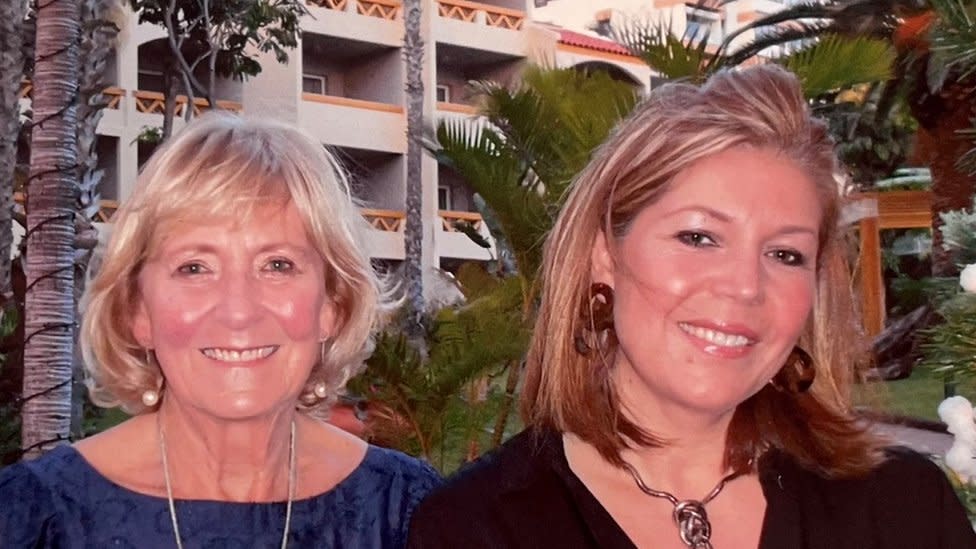Woman diagnosed with bowel cancer days after her mum
A woman diagnosed with stage four bowel cancer just days after her mum's own diagnosis is putting her efforts into supporting cancer research.
Rhiannon Tudor's mum was diagnosed with stage three bowel cancer in 2022, with Ms Tudor diagnosed 10 days later.
Ms Tudor, from Cheltenham, is still being treated but her mum Catherine is cancer-free.
She hopes people will consider leaving money in their will towards more research.
Speaking of her diagnosis, Ms Tudor said: "When my mum told me, obviously as upset as I was with her diagnosis I remember thinking, 'Well, she's probably got the bad luck and I'll be okay because what on earth would be the chances of us both being diagnosed with the same cancer within a week of each other?'
"Unfortunately, that wasn't the case."
Ms Tudor received a prognosis that "wasn't great" when she was first diagnosed, and was found to have more than 20 tumours in her liver and lungs.
She has been having bi-weekly chemotherapy and targeted treatment, which has been helping inhibit the growth and spread of her cancer.
Ms Tudor has stressed how taxing living with cancer can be, although maintains she is a "glass half-full person".

"It's a continuous rollercoaster of emotions but I am a really strong advocate of positivity," Ms Tudor said.
"I really do believe that having a positive mindset has a really strong physiological effect on your brain.
"So thinking you can fight it and get through it - I think the body responds to that.
"My body - thank goodness - has had a positive response and, over the last two years, I've had multiple reductions in tumours."
Ms Tudor continues to live with stage four cancer despite the tumour reductions, which is why she is so passionate about helping cancer research.
She described the three forms of treatment - chemotherapy, radiotherapy and surgery - as "brutal".
"Research holds the key to hopefully keep me going," she said.
"I think those three traditional forms of treatment, whilst they've certainly been effective, I think it's the immunotherapy, targeted treatment and the research that goes into them that is the way forward.
"For me, the conventional treatment, surgery and then, hopefully, no disease [route] - that's not an option for me.
"That's why research is so vital."
Follow BBC Gloucestershire on Facebook, X and Instagram. Send your story ideas to us on email or via WhatsApp on 0800 313 4630.
